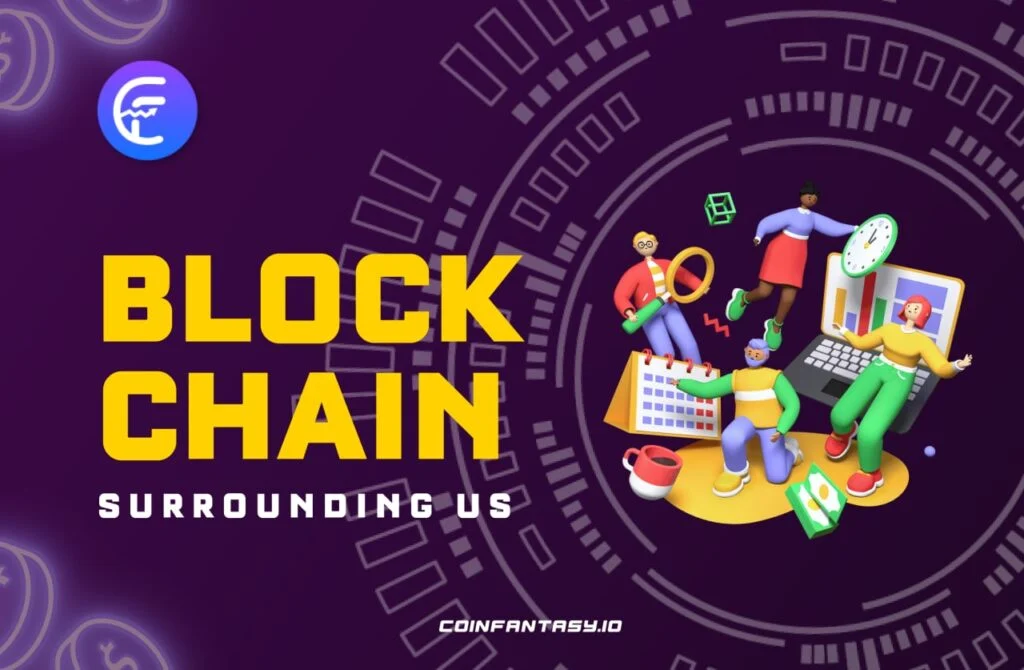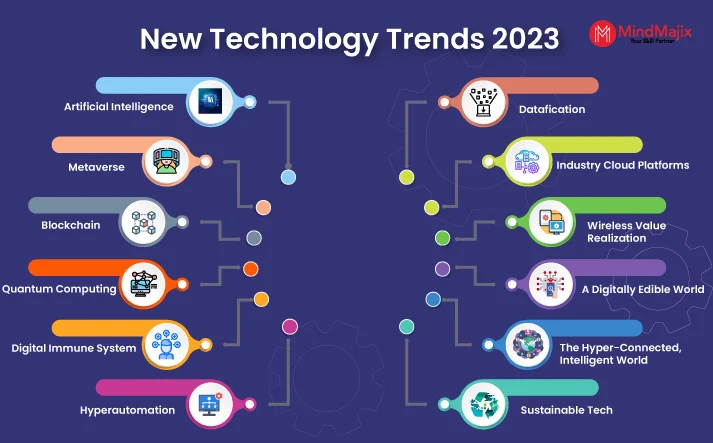Blockchain technology has revolutionized daily life in various ways. The effects of blockchain technology on daily life are evident in sectors such as finance, healthcare, supply chain management, and digital identity verification. The transparency, security, and decentralization offered by blockchain have made it an integral part of modern society, changing the way people transact, share data, and interact with technology.
The impact of blockchain technology on everyday life extends beyond financial transactions and data security. It has the potential to streamline processes, reduce fraud, and improve efficiency in various industries. Additionally, blockchain technology has led to the development of new business models and innovative solutions that cater to the evolving needs of consumers. Its influence can be seen in areas such as voting systems, intellectual property rights, and even the entertainment industry, where it has enabled new forms of digital ownership and distribution.
1. Decentralized Financial Systems
Blockchain technology has revolutionized the way financial transactions are conducted. With the use of cryptocurrencies and smart contracts, individuals can now transfer funds and make payments without the need for traditional banking systems. This has led to greater financial inclusion and reduced transaction costs for individuals and businesses around the world. Additionally, blockchain technology has the potential to provide greater transparency and security in financial transactions, reducing the risk of fraud and unauthorized access to funds.
Moreover, the use of blockchain technology in financial systems has also led to the development of decentralized finance (DeFi) applications, which offer a wide range of financial services such as lending, borrowing, and trading without the need for intermediaries. This has the potential to democratize access to financial services and empower individuals to have greater control over their financial assets.
2. Supply Chain Management
Blockchain technology has the potential to transform supply chain management by providing greater transparency and traceability of products throughout the entire supply chain. By using blockchain, companies can track the movement of goods from the point of origin to the final consumer, ensuring that products are authentic and have not been tampered with. This can help in reducing counterfeit products and ensuring the quality and authenticity of goods.
Additionally, blockchain technology can streamline the process of supply chain management by automating tasks such as inventory management, logistics, and payments. This can lead to greater efficiency and cost savings for businesses, as well as faster and more reliable delivery of products to consumers.
3. Identity Management
Blockchain technology has the potential to revolutionize identity management by providing a secure and decentralized way of managing identity information. With blockchain, individuals can have greater control over their personal data and how it is shared with different organizations. This can help in reducing the risk of identity theft and unauthorized access to personal information.
Moreover, blockchain technology can also help in providing secure and tamper-proof digital identities, which can be used for various purposes such as accessing government services, opening bank accounts, and even voting in elections. This can lead to greater trust and security in the management of identity information, as well as greater convenience for individuals in accessing various services.
4. Intellectual Property Rights
Blockchain technology has the potential to revolutionize the management of intellectual property rights by providing a secure and transparent way of registering and protecting creative works. With blockchain, creators can register their works on a decentralized ledger, providing indisputable proof of ownership and creation date. This can help in reducing disputes over intellectual property rights and ensuring that creators are properly credited and compensated for their work.
Furthermore, blockchain technology can also facilitate the licensing and distribution of creative works, ensuring that creators receive fair compensation for the use of their works. This can help in creating a more equitable and transparent system for the management of intellectual property rights, benefiting creators and consumers alike.
5. Voting Systems
Blockchain technology has the potential to revolutionize voting systems by providing a secure and transparent way of conducting elections. With blockchain, votes can be recorded on a decentralized ledger, ensuring that they are tamper-proof and cannot be altered. This can help in reducing the risk of election fraud and ensuring the integrity of the voting process.
Moreover, blockchain technology can also facilitate greater accessibility and convenience in voting, allowing individuals to vote from the comfort of their own homes using secure digital identities. This can help in increasing voter turnout and participation in elections, as well as reducing the cost and logistical challenges of conducting traditional in-person voting.
6. Healthcare Records
Blockchain technology has the potential to revolutionize the management of healthcare records by providing a secure and interoperable way of storing and sharing patient information. With blockchain, healthcare providers can securely access and update patient records, ensuring that they have the most up-to-date and accurate information. This can help in improving the quality of care and reducing medical errors.
Furthermore, blockchain technology can also provide patients with greater control over their health data and how it is shared with different healthcare providers. This can help in ensuring the privacy and security of patient information, as well as facilitating greater collaboration and coordination among healthcare providers in the management of patient care.
7. Real Estate Transactions
Blockchain technology has the potential to revolutionize real estate transactions by providing a secure and transparent way of recording and transferring property ownership. With blockchain, property transactions can be recorded on a decentralized ledger, ensuring that they are tamper-proof and cannot be altered. This can help in reducing the risk of fraud and disputes over property ownership.
Moreover, blockchain technology can also streamline the process of real estate transactions by automating tasks such as title searches, escrow, and contract management. This can lead to greater efficiency and cost savings for buyers, sellers, and real estate professionals, as well as faster and more reliable transfer of property ownership.
8. Notary Services
Blockchain technology has the potential to revolutionize notary services by providing a secure and tamper-proof way of verifying and authenticating documents. With blockchain, documents can be recorded on a decentralized ledger, providing indisputable proof of their existence and authenticity. This can help in reducing the risk of forgery and fraud in the notarization of documents.
Furthermore, blockchain technology can also facilitate greater accessibility and convenience in notary services, allowing individuals to verify and authenticate documents from anywhere in the world using secure digital signatures. This can help in reducing the time and cost associated with traditional notary services, as well as providing greater trust and security in the authentication of documents.
9. Gaming and Entertainment
Blockchain technology has the potential to revolutionize the gaming and entertainment industry by providing a secure and transparent way of managing digital assets and transactions. With blockchain, in-game items and virtual currencies can be securely recorded on a decentralized ledger, ensuring that they are authentic and cannot be duplicated. This can help in reducing the risk of fraud and counterfeit digital assets in the gaming and entertainment industry.
Moreover, blockchain technology can also facilitate the trading and transfer of digital assets between different games and platforms, creating a more interconnected and seamless gaming and entertainment ecosystem. This can lead to greater flexibility and value for gamers and content creators, as well as new opportunities for monetization and collaboration in the gaming and entertainment industry.
10. Charity and Aid Distribution
Blockchain technology has the potential to revolutionize the distribution of charity and aid by providing a secure and transparent way of tracking and managing donations. With blockchain, donations can be recorded on a decentralized ledger, ensuring that they are used for their intended purpose and are not subject to mismanagement or corruption. This can help in increasing trust and accountability in the charity and aid sector.
Furthermore, blockchain technology can also facilitate greater transparency and efficiency in the distribution of aid, ensuring that resources reach those in need in a timely and fair manner. This can help in reducing the administrative costs and delays associated with traditional aid distribution methods, as well as ensuring that aid reaches its intended recipients with greater accuracy and impact.
| Effects of Blockchain Technology on Daily Life |
|---|
| 1. Secure and transparent transactions |
| 2. Decentralized and efficient financial services |
| 3. Improved supply chain management |
| 4. Digital identity verification |
| 5. Enhanced cybersecurity |
conclusıon
Blockchain technology has revolutionized daily life by providing secure transactions, decentralized financial services, improved supply chain management, digital identity verification, and enhanced cybersecurity.




